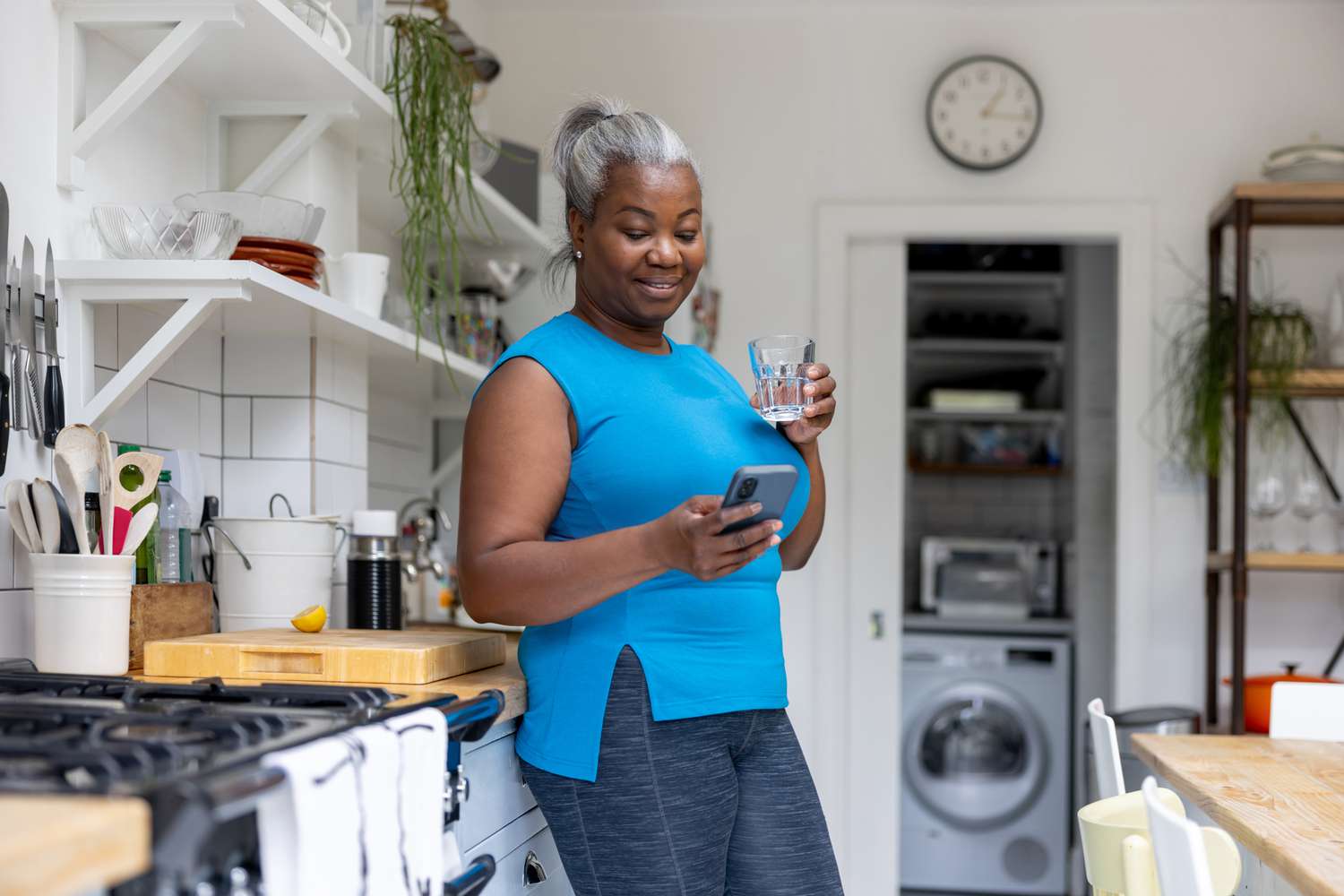Are Flavored Water Recipes on TikTok Healthy? Exploring WaterTok

Flavored water has become a viral trend on TikTok, with users sharing recipes for beverages like piña colada water, unicorn water, and peach ring water. Some creators claim that these sweetly flavored waters help them avoid soda and meet their daily water intake. However, there are concerns about whether flavored water is healthy.
WaterTok, the unofficial TikTok community of those who make flavored water recipes, has been flooded with questions and concerns from skeptical users. While the creators mix zero-calorie and zero-sugar syrups and flavor packets to create a sweet-but-healthy beverage, there may be potentially harmful ingredients involved.
“On the other hand, if someone regularly consume[s] sugary drinks like soda, presweetened coffees or teas, energy drinks, or juice drinks, switching to zero calorie, unsweetened flavored waters can have important health benefits,” says Dariush Mozaffarian, DrPh, MD, MPH, cardiologist and Jean Mayer professor at the Tufts University Friedman School of Nutrition Science and Policy.
Flavored water can refer to anything that adds flavoring to plain water, from artificial syrups or powders to natural flavors like fruit. Many TikTokers use flavor packets and syrups from grocery stores, including those from drink or candy brands like Crystal Light or Skittles, to experiment with new flavors and concoctions.
Making flavored waters has become popular as a way to avoid high-sugar beverages and reach daily water intake goals. However, the health benefits are hard to quantify, with experts disagreeing on whether the benefits outweigh possible risks.
While zero-calorie, zero-sugar sweeteners like sucralose—found in popular TikTok syrup brand Jordan’s Skinny Syrups—are considered safe by some experts, others worry about the possible effects of sucralose and FDA-approved sweeteners. Some studies have linked sucralose to increased food cravings and inflammation in the gut that led to inflammatory bowel disease in animals.
Ultimately, flavored waters made with cut-up fruit in water are healthy, but those with chemicals, dyes, and fake sweeteners may not be.
The unicorn Skinny Syrup, which is currently sold out online thanks to its TikTok popularity, has both red dye number 40 and acesulfame potassium. These two chemicals could be a cause for concern, Hunnes said.
Research is still being published about these types of chemical additives to food products. But some reports found that red dye no. 40 may be contaminated with carcinogens, cause colitis in mice, or even prompt hyperactivity in children with sensitivities. And acesulfame potassium, another artificial sweetener, has been shown to cause cognitive issues in mice. It also may contain minuscule amounts of methylene chloride, which is a carcinogen. But the FDA said they had “reasonable certainty that no harm will result” from using the chemical.
Even the Centers for Disease Control and Prevention (CDC) seems to be conflicted on the subject. It mentions that, “Plain coffee or teas, sparkling water, seltzers, and flavored waters, are low-calorie choices that can be part of a healthy diet.”
But CDC also quotes the Dietary Guidelines for Americans, noting that “replacing added sugars with high-intensity sweeteners may reduce calorie intake in the short-term…yet questions remain about their effectiveness as a long-term weight management strategy.”
We don’t yet have all the answers about the safety of these flavored water products, and experts themselves are divided on whether the WaterTok trend is a helpful or harmful one.
Ford does recommend flavored water in her clinic, she said.
“It’s a great way to get people to actually drink more water because in reality, it hydrates just the same as plain water. So if adding in a couple of pumps of flavored syrup that has no added sugar gets you to drink more water, I think it’s a wonderful tool,” she said.
Besides being hydrating, Ford also said that she recommends these products as a way for people to replace and cut out soda or alcohol.
Hunnes, however, is not so convinced. In addition to her concerns about artificial sweeteners and dyes, there’s also a possible risk that drinking these heavily-flavored waters too frequently may make some people “lose [their] ability to want the unflavored, just natural water,” she said.
Instead, Hunnes recommends flavoring water with cut up fruit, or by adding a small splash of regular juice to a large water bottle. Unsweetened tea or sparkling water are other good choices for people who don’t like the taste of plain water, or are trying to find ways to cut down on soda consumption, she added.
Despite the back and forth on WaterTok, it seems like anything besides drinking sugary sodas is a step in the right direction.




